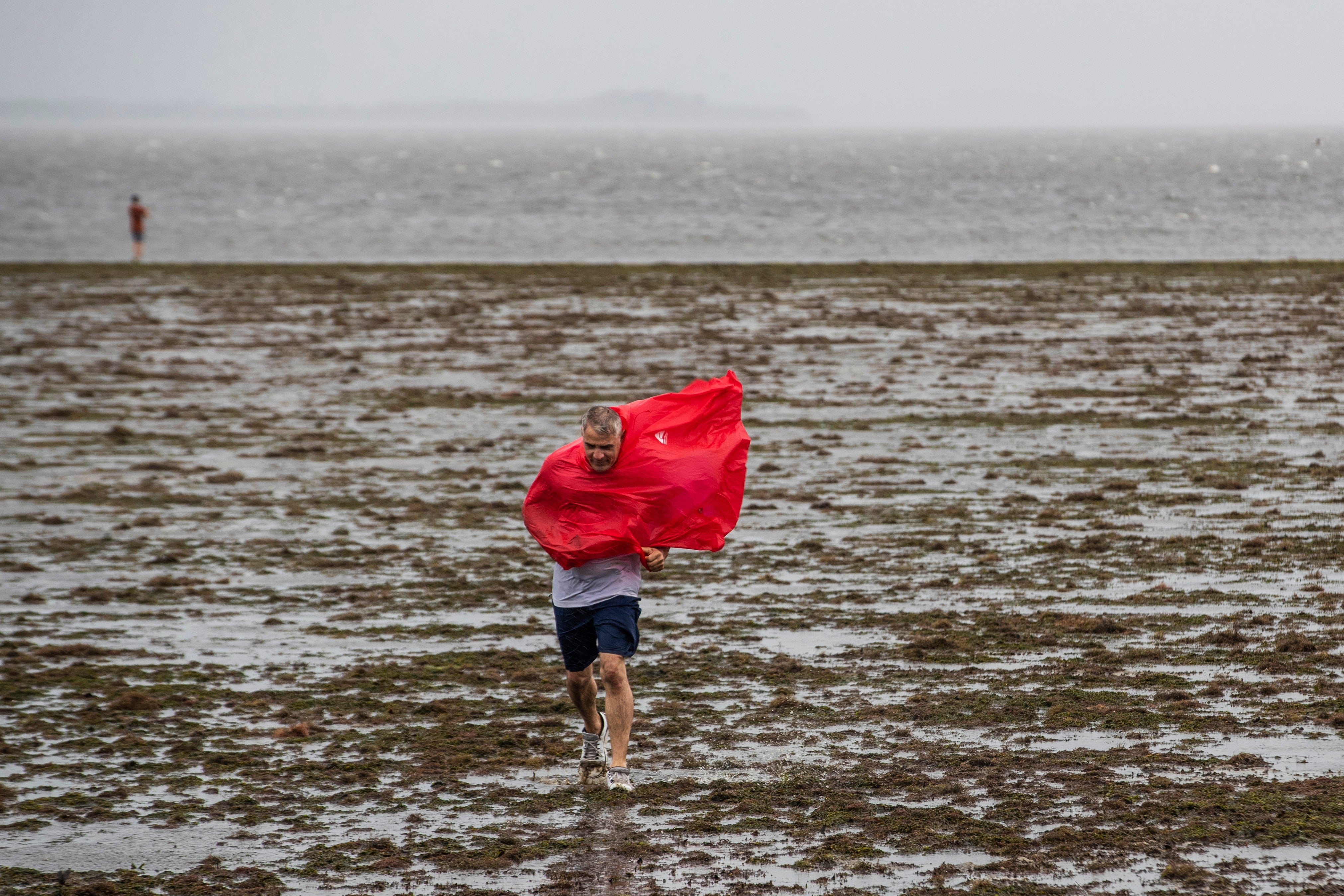NOAA: Tampa Bay dropped 5 feet in storm reverse surge
Weather officials say the waters of Tampa Bay dropped 5 feet (1.5 meters) in a phenomenon known as reverse storm surge as Hurricane Ian passed to the south

The waters of Tampa Bay dropped 5 feet (1.5 meters) in a phenomenon known as reverse storm surge as powerful Hurricane Ian passed to the south, weather officials say.
Then, it came back, according to the National Oceanic and Atmospheric Administration.
The exposed sandy bottom drew curious onlookers and selfie-takers Wednesday who walked out in an area normally under water. Officials warned of dangers but no one was injured when the water gradually returned after Ian passed to the northeast.
The water drained out by 12 a.m. Thursday and mostly returned about 12 hours later, NOAA said. Tampa Bay has a normal average depth of about 12 feet (4 meters) but is much shallower closer to Tampa itself.
The phenomenon of the bay emptying also happened in 2017, when experts said Hurricane Irma caused a negative surge. Because a tropical storm’s winds blow counterclockwise, the winds at the northern edge of Hurricane Ian were blowing from east to west with so much force that they pushed the water from the bay into the Gulf of Mexico.
Ian once was forecast to slam into Tampa Bay but shifted to the south, eventually coming ashore Wednesday near Fort Myers.
___
The AP's coverage of Hurricane Ian is at: https://apnews.com/hub/hurricanes?utm_source=apnewsnav&utm_medium=featured
Bookmark popover
Removed from bookmarks